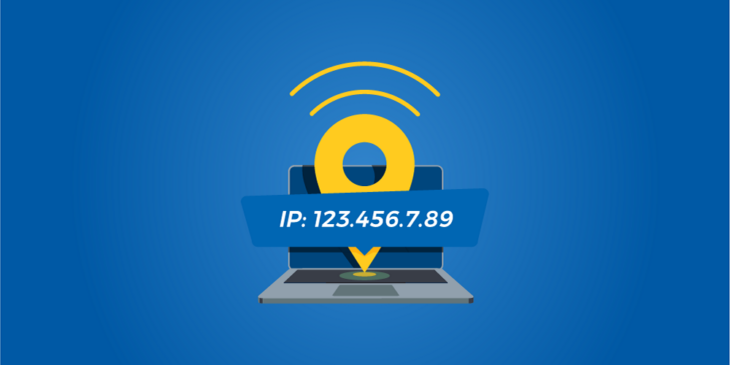Intermediary servers are one of the major topics when cybersecurity concerns are being discussed. Many businesses use them to increase the privacy of their networking.
A virtual private network (VPN) and a proxy are two types of such servers. Their main task is to provide anonymity by hiding their user’s IP address and allowing them to connect to the internet through their servers instead of a network given by the user’s Internet Service Provider.
Although their main goal is the same, they achieve it differently. Today we will discuss what those differences are. They can help you determine which service you might want to use.
Contents
1. The number of substitute IP addresses

Source: blog.hidemyass.com
One of the most significant differences is how a VPN and a proxy server handle the concealment of the IP address. Click here to read more about it.
A VPN server has its own IP address that is used instead of an original IP address of a user. When they send a request to any server on the network, it comes from an IP address of a VPN server, and nobody can see what the IP address of an actual user is.
Even if you can use a single proxy for anonymity, regular people or businesses use a bulk of proxies with many different IPs that a user can use at a time and rotate them to change from one to another. It’s one of the best features that proxies provide, and later in this article, we will explain why.
So, a VPN changes your IP address into a new single IP, while a proxy server can switch it into multiple new IPs.
2. Encryption

Source: datacenterknowledge.com
Most of the time, VPN servers are considered safer than proxies because VPNs encrypt all your traffic. They provide end-to-end encryption where only a sender and a receiver can see what the encrypted data is.
Most proxies don’t have this feature. Usually, this fact is used against proxies as an argument for VPN’s better security and overall usefulness for businesses.
This argument is outdated, though.
SSL proxy is a type of proxy server that provides full encryption of your data readable only for those who receive it from you. If someone intercepts your data, it will be encrypted to make it unreadable to any third parties.
3. Sharing the new IP address

Source: networkworld.com
A crucial distinction between a VPN and a proxy server lies in how clients of each server use the new IP address.
VPN users all use the same IP address at the same time. It means that if someone is noticed for doing something that deserves to be blocked while using the IP address of this VPN, you will be blocked too. Since you are sharing it with other clients of your VPN service, you also share the same fate regarding this IP.
Proxies are more flexible in this respect. You can have dedicated IPs that will be used only by you at the time. Some VPNs can offer this feature too. Any other users would not influence you. But with proxies, once something goes wrong with this particular IP, you can change it and continue your work without bothering about any tribulations that might occur based on your IP address.
4. The amount of traffic routed

Source: ferroquesystems.com
All your traffic, including your background, is routed through the VPN when you are using it. It can be seen both as an advantage and as a drawback.
When using VPN servers, you trust more of your data on the server to be protected. If a VPN were compromised somehow, for instance, because of the fault of other clients, you would be risking exposing more sensitive information to the threat. On the other hand, as long as the VPN works fine, more of your data is being protected.
Likewise, a proxy server routes only relevant traffic, only the traffic of your browser or a specific app. Therefore, you have no risks of exposing something that you are not aware of in case of a malicious attack.
5. Speed

Source: smarterhomeguide.com
Even if advanced VPN services offer high speed and uptime, since VPNs encrypt your traffic and include all of it, it can slow down your connection.
VPN uses a local client to make a connection to the server. It means that your connection to the server depends on the performance of your device. If it has any issues, that will impact the speed of using a VPN even more than it would have on a stable internet connection.
Again, a proxy doesn’t route all your traffic and doesn’t have to encrypt so much data. That makes them faster and less reliant on how well your computer performs.
6. Malware protection

Source: securityintelligence.com
Some VPNs have built-in malware detection systems. Others can be used in combination with other security systems. Nevertheless, most VPNs don’t have protection against malware. They provide encryption, privacy, and security from third parties accessing your data. But malicious attacks can still happen.
Meanwhile, proxies can block access to known malware sites and provide better protection against malicious attacks.
But more importantly, proxies use multiple IPs, making it way more challenging to carry out a malware attack. When you don’t have a sustaining identity online because any traffic surveillance falls apart the exact moment you change your IP once again, any malicious practices will have to start over before identifying a single user as their victim.
7. Scale of use

Source: thesocialproxy.com
Proxies make you harder to detect and block. Multiple IPs grant you access to virtually any content online without struggling with any geo-restrictions. IP bans are no longer an issue for you because you can change your IP any time and regain what has been blocked.
VPNs are disadvantageous for big-scale projects involving activities like web scraping, sneaker copping, or social marketing. The IP of your VPN will be blocked, and that’s a dead end. In this regard, proxies trump the VPN.
Conclusion
VPNs and proxies are suitable for anonymous access to the internet and bypass certain restrictions. But proxies are a much better option for more extensive projects because their endless resources of rotating IP addresses make you virtually block-free.
